Exclusive Interview: Ben Sharp from Cloudkicker
posted in: Exclusive Interviews • Music News • Rock
 For many artists, music is about “making it big” and living the proverbial “dream” but not for Ben Sharp, solo artist behind the DIY instrumental post-rock/metal project Cloudkicker. In fact, Sharp is comfortably living his own version of said “dream” from his home in Columbus, Ohio. While his career as a musician may seem like more than just a hobby, with eight impressive releases available on Bandcamp and a considerably large international fan-base, Cloudkicker remains as such. In fact, his music is even available for free online. It was only within the past few years that he started to accept payment for downloads, with a humble “name your price” option. This started in 2010 with the release of his breakthrough album, Beacons, a full-force bludgeoning of rapid instrumental and musical proficiency that would bring any musician or metalhead to their knees. Upon first listen, one might expect this to be the next big band of skilled musicians to take over the world of post-rock and metal (or “djent” as some music fans have called the genre), but upon more research you will find that it is just Sharp’s sole ambitious and talented efforts. I had the pleasure of speaking with him about the comfortable and fortunate position he has found for himself in the music world, as well as his thoughts on the music industry, how the Internet is changing the way ideas and music are shared, what his journey has been like so far, and what lies ahead for Cloudkicker.
For many artists, music is about “making it big” and living the proverbial “dream” but not for Ben Sharp, solo artist behind the DIY instrumental post-rock/metal project Cloudkicker. In fact, Sharp is comfortably living his own version of said “dream” from his home in Columbus, Ohio. While his career as a musician may seem like more than just a hobby, with eight impressive releases available on Bandcamp and a considerably large international fan-base, Cloudkicker remains as such. In fact, his music is even available for free online. It was only within the past few years that he started to accept payment for downloads, with a humble “name your price” option. This started in 2010 with the release of his breakthrough album, Beacons, a full-force bludgeoning of rapid instrumental and musical proficiency that would bring any musician or metalhead to their knees. Upon first listen, one might expect this to be the next big band of skilled musicians to take over the world of post-rock and metal (or “djent” as some music fans have called the genre), but upon more research you will find that it is just Sharp’s sole ambitious and talented efforts. I had the pleasure of speaking with him about the comfortable and fortunate position he has found for himself in the music world, as well as his thoughts on the music industry, how the Internet is changing the way ideas and music are shared, what his journey has been like so far, and what lies ahead for Cloudkicker.
OS: I know you do Cloudkicker solely as a passionate hobby just for the love of it, but the music you create is so good, so complex, and so well produced that it’s clear you really take your art seriously and devote a lot of attention to it. How much time would you say you spend playing/writing/recording music on a regular basis?
BS: Well it seems to come in waves… I’ll preface this by saying the great part about my working life is is that I don’t have to bring any of the work home with me so when I’m done, I’m done; the two worlds can be totally separate. And what that allows me to do is, on my days off, when I wanna get into music I can start at 9am and just keep working til night time if I want to… I’m very “groove-oriented” in that way where it’s just kind of like if I start feeling something or if I’m really into and motivated about what I’m working on, I tend to kind of do that and nothing else until I’m done with it… But to answer your question, how much time do I spend on it? There’s times where it’s like that, and then there’s times like right now where I feel like I’m in between… Honestly, I’ve picked up a guitar maybe two times in the past couple weeks, so I feel like I’m more in a lull than I have been.
OS: Being a fully DIY artist, you mix all of your recordings yourself. Do you do the mastering too?
BS: Yeah, I do everything. Everything involving how the music is and sounds is me. So I mean, it’s an undertaking, and I’m not a “professional” at this… I spent the better part of two months mixing and mastering Fade obsessively… See, I didn’t go to school for this. I didn’t acquire it through any other way than through trial and error, so it takes me a long time to do something that’s probably simple for people that do it as a profession. But I just try to spend as much time as I need on it. But yeah, I do everything.
OS: Would you say that you enjoy the process of writing, recording, and playing music by yourself more than playing live or with a band?
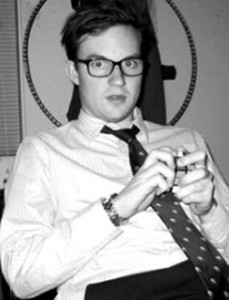 BS: Umm… that’s a tough question. Well the last time I played in a band was in 2007, and that was the early version of Cloudkicker, and it was super fun because it was different than other bands I had been in before… That was more like “we’re just gonna play in some garage. We’re gonna play to a handful of people and just mostly be hanging out but at the same time playing music,” and that was more my style… I didn’t exactly know where or how I should be motivated… I got outta the bands thing for a little while… But then comparing that to right now is kinda hard for me to do because it’s just such a difference. But if I could do that again, like “Let’s just play some music and hang out, and there might be people there,” that would be really fun, but… to get it up to the point where I’d be comfortable playing, ya know, having people pay us to play music for them and trying to deliver something up to my standards”the amount of work that would go into that I just don’t feel too keen on right now. So I’m totally content. I don’t feel like i’m missing out on anything playing music on my own.
BS: Umm… that’s a tough question. Well the last time I played in a band was in 2007, and that was the early version of Cloudkicker, and it was super fun because it was different than other bands I had been in before… That was more like “we’re just gonna play in some garage. We’re gonna play to a handful of people and just mostly be hanging out but at the same time playing music,” and that was more my style… I didn’t exactly know where or how I should be motivated… I got outta the bands thing for a little while… But then comparing that to right now is kinda hard for me to do because it’s just such a difference. But if I could do that again, like “Let’s just play some music and hang out, and there might be people there,” that would be really fun, but… to get it up to the point where I’d be comfortable playing, ya know, having people pay us to play music for them and trying to deliver something up to my standards”the amount of work that would go into that I just don’t feel too keen on right now. So I’m totally content. I don’t feel like i’m missing out on anything playing music on my own.
OS: So your music is available online for free or “name your price,” and I know the physical sales go back into funding more Cloudkicker stuff, so what do you do for a job in your daily life aside from Cloudkicker?
BS: Well I’ve kind of purposefully kept that convoluted. My stock response to that is, like I said before, I try to keep the work stuff and the music stuff in two totally different worlds so that they don’t mix with each other because it just makes me more comfortable for it to be that way. What I do for a living doesn’t have any sorta influence to what I do, doesn’t have anything to do with music at all, so it’s kinda like a totally different thing that I have going on, and it provides me enough flexibility to work on this, so I don’t really think it’s important to get into that. I love what I do with both routes, but I also love that they don’t ever intersect. It adds to that balance, ya know?
OS: What would you say you like most about having established yourself in this way as an artist?
BS: Well I like… I like a lotta stuff! I mean, I like that I get to do whatever I want to do on my own schedule, and that includes nothing. Like if I just wanna not do anything for a little while, I can do that and it doesn’t matter. It seems like there’s been two parts to this “ride” that I’ve been on. The first part was everything that happened before I made the album Beacons, and 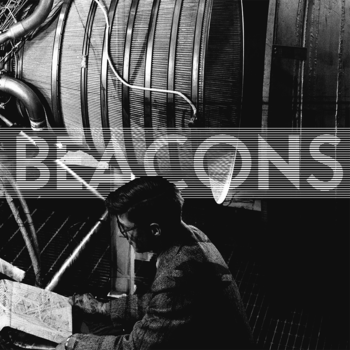 that was just really super DIY because there was no money prior to Beacons. It was all me. So it was even more amateur-ish… I’d get a handful of responses about the things that I did. It was super fun, and that was it. And I guess behind the scenes there was just kind of like a welling up of interests, and then Beacons happened, and as soon as I flipped the switch to “alright, you can give me money if you want to””I’d get that request so frequently”so as soon as I flipped that situation it has been like if the floodgates opened… the “post-Beacons” part of the ride has been super interesting. I… put out this totally different thing that I called Let Yourself Be Huge,” and… I
that was just really super DIY because there was no money prior to Beacons. It was all me. So it was even more amateur-ish… I’d get a handful of responses about the things that I did. It was super fun, and that was it. And I guess behind the scenes there was just kind of like a welling up of interests, and then Beacons happened, and as soon as I flipped the switch to “alright, you can give me money if you want to””I’d get that request so frequently”so as soon as I flipped that situation it has been like if the floodgates opened… the “post-Beacons” part of the ride has been super interesting. I… put out this totally different thing that I called Let Yourself Be Huge,” and… I  didn’t know how it was gonna be received. And it got even more of a response than Beacons, so that really floored me and just kinda drove home that “wait, I can do whatever I want,” and that’s what I’ve been doing since. And I’m going to keep doing things, and I’m going to keep having these musical mood swings and putting out things that don’t necessarily fit in with anything else that I’ve done. I would do it anyway, but to have that confidence… that’s incredibly validating, and as much as I’m not in this for that recognition, ya know, it’s still there and I’m still a human being, so to know that there are people out there that are just absolutely on the same page as me is incredibly validating. Yeah, that’s the number one thing that I like about what I’m doing is this incredible connection and incredible sense of knowing that I’m communicating with people in a way that I could have never done before… on this incredible scale that no one or very few people get to experience in their lives.
didn’t know how it was gonna be received. And it got even more of a response than Beacons, so that really floored me and just kinda drove home that “wait, I can do whatever I want,” and that’s what I’ve been doing since. And I’m going to keep doing things, and I’m going to keep having these musical mood swings and putting out things that don’t necessarily fit in with anything else that I’ve done. I would do it anyway, but to have that confidence… that’s incredibly validating, and as much as I’m not in this for that recognition, ya know, it’s still there and I’m still a human being, so to know that there are people out there that are just absolutely on the same page as me is incredibly validating. Yeah, that’s the number one thing that I like about what I’m doing is this incredible connection and incredible sense of knowing that I’m communicating with people in a way that I could have never done before… on this incredible scale that no one or very few people get to experience in their lives.
OS: A lot of like-minded artists would see this as the most ideal or organic way to be a musician in terms of how their art is perceived. Would you agree?
BS: I have heard that from more than one… pretty big touring band. Just from doing this, I’ve gotten feedback, and on more than one occasion, bands like that have told me that this is kind of like “the dream.” I’m kind of in awe of them saying that to me. Like… I’m doing what they would want to do, and… I don’t know, it just kinda made me think about things a lot differently… what I’ve understood is that for some musicians, they got to a certain point, that kind of upper-mid level of notoriety. It seems like they see what I’m doing and they tell me that that’s their ideal, and that makes me feel… really… [It’s] very humbling. And I did it without any knowledge of their industry.
OS: It’s an interesting dynamic when you have all these people who are pushing for “the dream,” but you show them that it’s possible to do it differently without having to worry about marketing or playing the right shows. Is that what you mean?
BS: Yeah, and that’s the part that I totally don’t envy. If you say your goal is… [to] play for Taylor Swift and have a totally lucrative career doing that, that is awesome. And if someone is able to ascend to that position, or be a studio drummer or 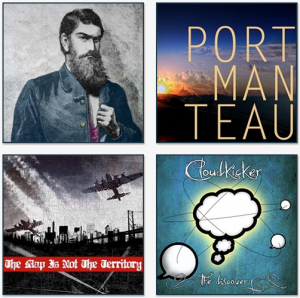 anything, studio saxophonist, and they’re just having fun with it, that’s a totally different thing than what we’re talking about… If you’re like me and music is something that helps you kind of sift through your experiences, that helps you to see things around you in a way that you haven’t been able to identify or get out of a lot of other things in life, and that’s just a fundamental aspect of your existence is the experience of music, then that’s a different kind of reality than that [other] person… If music is how you’re trying to figure out life then you don’t really want life creeping into your music and messing with it, you know what I mean? …Like whenever someone gets in touch with me and they wanna use a song that I’ve written… The most recent one was a guy up in Canada [for a documentary]… I had to sign something. Whenever I have to sign my name because of music, it just makes me very uncomfortable because it just feels like that life encroaching. Those parts of life that you’re not very keen on are working themselves into this part that you are keen on… I have [been] keeping music as little like a job as possible because when it becomes a job”and there’s a difference between a job and a passion”it’s a task. And I so don’t want that to be what music is for me… I’m just trying to eliminate as much of that as possible… I’m just gonna keep doing it in my bedroom, and I’m just gonna keep doing it on my computer, and I’ll control everything.
anything, studio saxophonist, and they’re just having fun with it, that’s a totally different thing than what we’re talking about… If you’re like me and music is something that helps you kind of sift through your experiences, that helps you to see things around you in a way that you haven’t been able to identify or get out of a lot of other things in life, and that’s just a fundamental aspect of your existence is the experience of music, then that’s a different kind of reality than that [other] person… If music is how you’re trying to figure out life then you don’t really want life creeping into your music and messing with it, you know what I mean? …Like whenever someone gets in touch with me and they wanna use a song that I’ve written… The most recent one was a guy up in Canada [for a documentary]… I had to sign something. Whenever I have to sign my name because of music, it just makes me very uncomfortable because it just feels like that life encroaching. Those parts of life that you’re not very keen on are working themselves into this part that you are keen on… I have [been] keeping music as little like a job as possible because when it becomes a job”and there’s a difference between a job and a passion”it’s a task. And I so don’t want that to be what music is for me… I’m just trying to eliminate as much of that as possible… I’m just gonna keep doing it in my bedroom, and I’m just gonna keep doing it on my computer, and I’ll control everything.
OS: A lot of bands, artists, and music companies spend tons of time, money, and effort on promotion and marketing. How does it make you feel that your music can speak for itself so greatly that people all over the world have heard of you and have become fans simply through the Internet or word of mouth?
BS: It’s mind-blowing. It’s one of those things where, if I just sit down in a quiet room and start thinking about it, it makes me feel like a schizophrenic person (laughs)… It’s a lot to comprehend all at once… I’ve never promoted this ever. I’ve never said, “Hey! Here, listen to my music. Here’s an e-mail link to my band.” I’ve never done that ever, and I get e-mails from people in Russia telling me how what I’ve written has impacted their life, and I’m like, “How the hell did that happen?!” And people from Japan saying that something that I’ve written helped them through a tough time, and it’s like… for me to even start to imagine the kind of connections that had to take place for that e-mail to get back to me… It’s just almost impossible to comprehend.
OS: What are your thoughts on the ease with which music and ideas can be shared online?
BS: Uhh… I love it. The free exchange of ideas is what will transform the planet at some point… I really honestly feel that. The easier it is for anyone to share any idea, the better off we all are, without forcing anything on anybody… It doesn’t count as a free exchange of ideas if you’re forcing someone to listen to your music. I never wanna be the guy on the street that won’t leave you alone about taking his rap demo… I have no dog in the fight about the music industry. I kind of say, “To hell with the music industry” because in my experience, they don’t do anything. I haven’t needed them up to this point and I personally don’t need them going forward, and if I fizzle out and the money stops coming in, then that will have been something that I either chose to do or I wasn’t producing something that people felt was worth it anymore. Either way, it’ll run its course, and I don’t feel the need to prolong that in any way by enlisting some kind of monstrous entity to have reign over what I make, to try and jam it into as many pockets as it can go. I’d rather just kinda let it find its way on its own.
OS: The route you’ve gone seems like a healthy, for lack of a better word, way to go about things in a way that is more conducive to the creative process. Would you agree?
BS: Well it feels pretty healthy to be honest… I use it as a way to express something. My concept’s clear about how I’ve gone about this, and to me it counts for something. The more I’ve kind of given up wanting to control how people perceive what I’ve 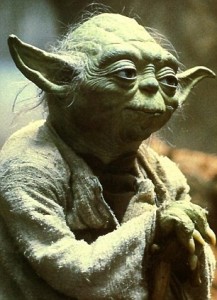 done, the more I’ve gotten in return for what I’ve made… It’s like that saying… “If you try to float, you sink. If you try to sink, you float.” Ya know, “The more you hold onto sand, the less of it you’ll have in your hand.” …It’s that weird thing that seems to pop up again and again about being cool with just doing what you do and, to some degree, letting it just happen itself… My favorite quote from Star Wars is when Yoda said, “Do or do not, there is no try,” because when you say you’re “trying” to do something, what are you really saying? Aren’t you just saying that “I’m gonna do this and maybe I won’t be successful at it”? But then you’re not really doing it. You’re just kind of half-assing it because you’re allowing for some level of failure.
done, the more I’ve gotten in return for what I’ve made… It’s like that saying… “If you try to float, you sink. If you try to sink, you float.” Ya know, “The more you hold onto sand, the less of it you’ll have in your hand.” …It’s that weird thing that seems to pop up again and again about being cool with just doing what you do and, to some degree, letting it just happen itself… My favorite quote from Star Wars is when Yoda said, “Do or do not, there is no try,” because when you say you’re “trying” to do something, what are you really saying? Aren’t you just saying that “I’m gonna do this and maybe I won’t be successful at it”? But then you’re not really doing it. You’re just kind of half-assing it because you’re allowing for some level of failure.
OS: So, how has Fade been recieved? Your newest album. You released it in August, right?
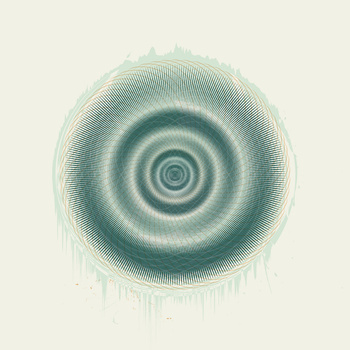 BS: Yeah, it’s been two months, and it has been received… very, very good? (laughs) I mean, to be honest, the first couple weeks I really kept my ear to the ground, and once I saw that it was basically the same as the things that’ve come out before it, I kinda stopped paying attention… I must have listened to each song one hundred times when I was mixing and mastering it, which is way too much (laughs), so I let it go. I kinda put it out there, then… immediately kind of went about with just life and stuff. It’s kinda weird because if we’re gonna use the financial metric, it’s done as well or better than anything that came before it. If we’re gonna use the metric of the e-mails I get from people, it’s done as well or better than anything before it. So everything seems to be pretty good… I feel very strongly about what I was doing when I was making it. I put it up there and it seems to have stuck just like everything else I had. I don’t wanna say at this point that it’s getting routine, but it’s very comfortable, ya know? And I’m trying not to get too complacent about that.
BS: Yeah, it’s been two months, and it has been received… very, very good? (laughs) I mean, to be honest, the first couple weeks I really kept my ear to the ground, and once I saw that it was basically the same as the things that’ve come out before it, I kinda stopped paying attention… I must have listened to each song one hundred times when I was mixing and mastering it, which is way too much (laughs), so I let it go. I kinda put it out there, then… immediately kind of went about with just life and stuff. It’s kinda weird because if we’re gonna use the financial metric, it’s done as well or better than anything that came before it. If we’re gonna use the metric of the e-mails I get from people, it’s done as well or better than anything before it. So everything seems to be pretty good… I feel very strongly about what I was doing when I was making it. I put it up there and it seems to have stuck just like everything else I had. I don’t wanna say at this point that it’s getting routine, but it’s very comfortable, ya know? And I’m trying not to get too complacent about that.
OS: I noticed some Siamese Dream influence on a of the songs, and I actually saw your blog where you mentioned you’d gotten back into that album.
BS: Oh yeah. I mean I’ve been open about the fact that I was basically trying to copy Siamese Dream (laughs). Siamese Dream [by The Smashing Pumpkins] and You’d Prefer An Astronaut by the band Hum were two kind of mid-90’s alt-rock albums that I was basically referencing when I made this… There’s something about that vibe that was really gripping to me about six months ago and throughout the process of putting together the music. I really purposefully wanted everything to be 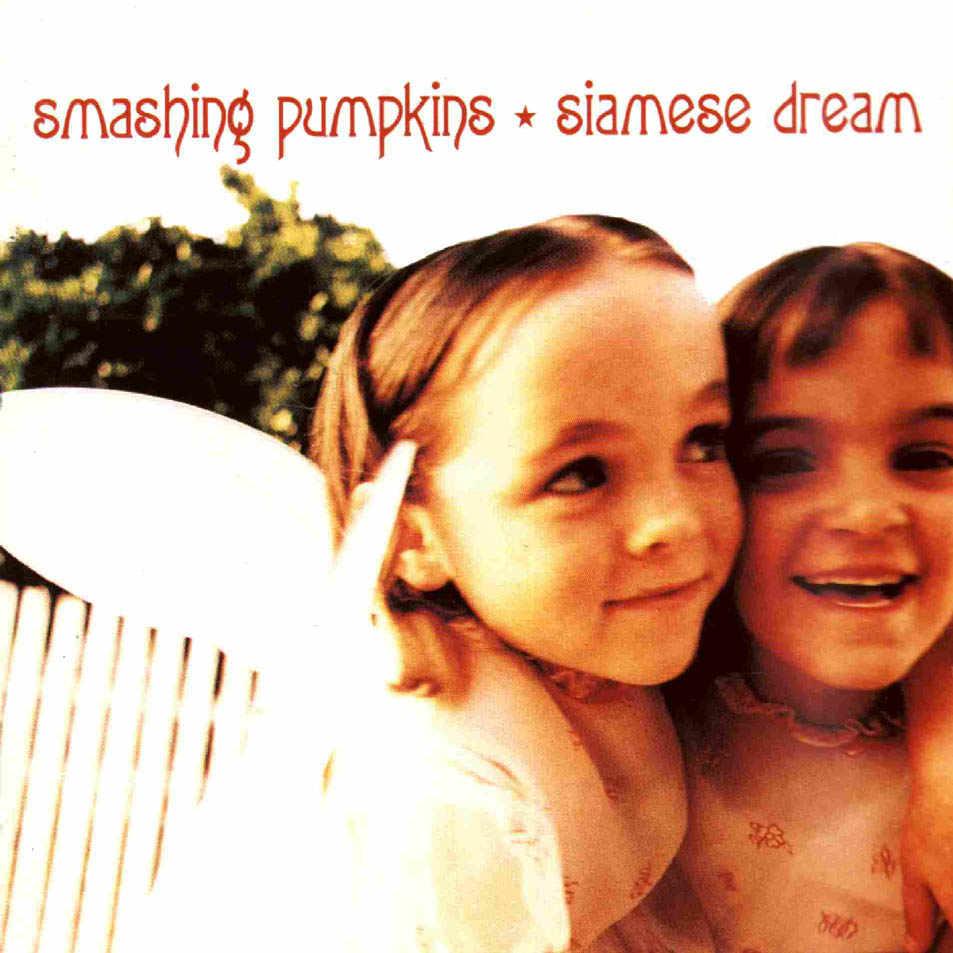 filtered through that because there’s just something so nostalgic to me about that. A few months ago, the whole idea of what nostalgia is really became clearer to me, and I wanted to get at that, to do that fully, to commit to it. So I wanted the record to sound like it was… made in the 90’s. I wanted it to have that gritty, almost unprocessed vibe of when you had to record on tape… I did a lot of single takes n’ stuff, just left in mistakes as part of the feeling. I listened to [Siamese Dream] with new ears for the first time. It’s like I hadn’t listened to it in five or six years, and after doing the Cloudkicker stuff for a while, for whatever reason, I was turned onto that album again, and I was like, “This is a lot like what I have been doing.” I just couldn’t stop reading about it. I would try to find everything I could about the way they recorded that album, and everything was like, “This is exactly what I do.” Billy Corgan‘s obsession with recording 40 guitar tracks of the same riffs so it would just sound huge. The correct way to listen to that album is that you turn it up so loud that your walls are shaking and that it is all of your experience… I was so taken with that idea that I wanted to kind of punctuate that for some people… So I kinda point to that. But at the same time you filter that through nostalgia and it takes on this whole other meaning, you know? Then you have this whole other set of emotions to draw from.
filtered through that because there’s just something so nostalgic to me about that. A few months ago, the whole idea of what nostalgia is really became clearer to me, and I wanted to get at that, to do that fully, to commit to it. So I wanted the record to sound like it was… made in the 90’s. I wanted it to have that gritty, almost unprocessed vibe of when you had to record on tape… I did a lot of single takes n’ stuff, just left in mistakes as part of the feeling. I listened to [Siamese Dream] with new ears for the first time. It’s like I hadn’t listened to it in five or six years, and after doing the Cloudkicker stuff for a while, for whatever reason, I was turned onto that album again, and I was like, “This is a lot like what I have been doing.” I just couldn’t stop reading about it. I would try to find everything I could about the way they recorded that album, and everything was like, “This is exactly what I do.” Billy Corgan‘s obsession with recording 40 guitar tracks of the same riffs so it would just sound huge. The correct way to listen to that album is that you turn it up so loud that your walls are shaking and that it is all of your experience… I was so taken with that idea that I wanted to kind of punctuate that for some people… So I kinda point to that. But at the same time you filter that through nostalgia and it takes on this whole other meaning, you know? Then you have this whole other set of emotions to draw from.
OS: Do you have any plans as of now for Cloudkicker, or are you just kind of laying low and letting the new release do its thing?
BS: Umm… How can I answer that question? Yeah, I do have some definite plans right now. I do wanna let Fade just sit and settle for a while. My mom called me the other day, and she was like, “I finally understand that album, and I really like it.” So I think the music I make definitely grows, ya know? It’s not the thing you think it is the first time you listen to it. So without being too pretentious about it, I just wanna let it sit and simmer and steep in people’s heads for a little while before I do anything and, ya know, change it up. But I have ideas, and then I have things that I definitely wanna do. So at least I have a little bit of a road map for the next six months or so.
OS: Well, good luck with all of that, and thank you so much for taking the time to talk with me.
BS: Thanks for the interesting conversation. I really enjoyed it.
If you like Cloudkicker, then you might also like OurStage’s own Amia Venera Landscape or Chon
More like this:
